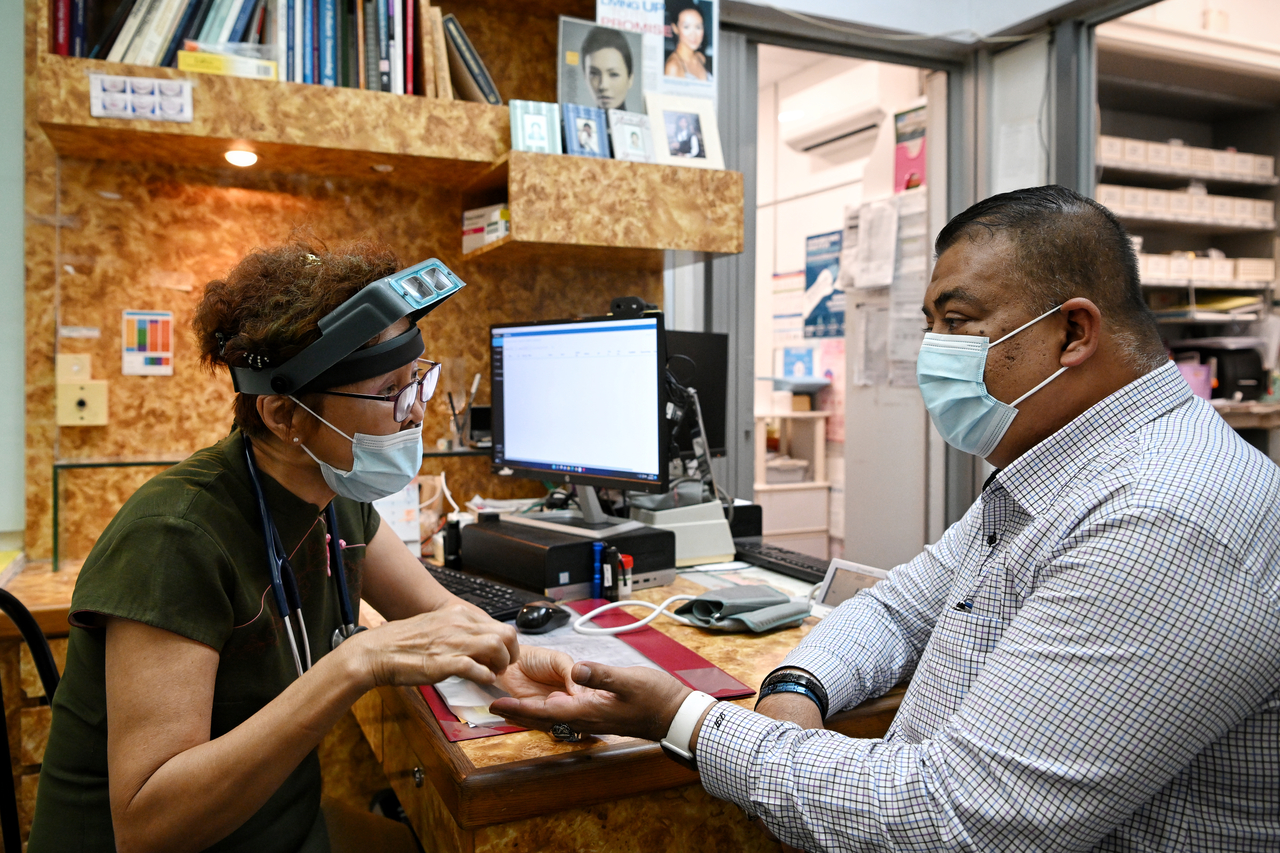Respect for GPs needed for Healthier SG's big shift to preventive care, say MPs
Sign up now: Get ST's newsletters delivered to your inbox

Trusting relationships between doctor and patient is what the Healthier SG initiative hopes to achieve.
ST PHOTO: KUA CHEE SIONG
Follow topic:
SINGAPORE - Since Workers' Party MP He Ting Ru was just five, she and her family have been taken care of by their family doctor, whom she remembers for his gentle humour, patience and smiling countenance.
Naming him only as Dr Goh, Ms He (Sengkang GRC) said: "Doctor's visits never felt stressful - whether it was for a flu infection or a routine follow-up."
His nurses got to know her entire family, which included two ageing grandmothers, well enough to automatically pull out their patient cards without them having to provide their registration details.
Dr Goh also won the trust of Ms He's parents, and her mother could call him up whenever she had any medical, or even quasi-medical, concerns, said Ms He as she recounted the close relationship the doctor had with her family.
Such trusting relationships between doctor and patient are what the Healthier SG initiative hopes to achieve.
Ms He was among 18 MPs who spoke in Parliament during the debate on the White Paper on Healthier SG, which outlines a major shift in the healthcare system that will see general practitioners taking on a key role in ensuring that individuals are kept healthy and avoid falling ill, instead of reactively caring for those who are already sick.
Ms Mariam Jaafar (Sembawang GRC) raised examples of residents who are struggling with financial and emotional stress in the face of chronic diseases.
Citing one resident, Mr Z, who suffers from arthritis and has a diabetic wife, she said: "He has problems - how to cover the cash co-pay for her next hospital visit, how to pay for the dialysis bags and other consumables that are not covered by MediSave, how he is going to push her in her wheelchair for her dialysis treatments, sometimes in the rain, when the growing arthritis in his bones sends waves of pain up his legs and back."
Another resident, Mr T, refuses to go for check-ups and screening because he would not have the money for treatment if a disease is detected, said Ms Mariam. She added that the Healthier SG policy shift is necessary and overdue, as too much has been spent on acute care and too little on prevention.
But to ensure the new model works, respect needs to be given to family doctors and their work, MPs said.
“Let’s face it, our intellectual respect is not for prevention. Our intellectual respect is for the surgeon who pulls off a complicated surgery,” Ms Mariam said.
“Let’s face it, our intellectual respect is not for prevention. Our intellectual respect is for the surgeon who pulls off a complicated surgery,” Ms Mariam said.
Citing examples such as persuading someone to quit smoking, helping a senior build up confidence to exercise again after an illness, and planning ahead before a health crisis, Dr Tan Wu Meng (Jurong GRC) pointed out that preventive, chronic and holistic care takes time.
It is important for the Health Ministry to understand how much time is needed and to recognise and support healthcare workers, he said.
"Paying family doctors to do this important work, recognising the time needed - this is an important step. It sends a message that the work must be done, the work takes time, the work must be recognised." added Dr Tan, an oncologist at the National Cancer Centre.
Nominated MP Tan Yia Swam said that after the hurrah of healthcare heroes during the Covid-19 pandemic, healthcare workers are now struggling with a backload of cases, long waiting times and general unhappiness.
"We see some patients who have chosen not to know anything about their own bodies. On the other hand, we also see some people who Google non-stop and take bits of information with inadequate context - even to the extent of arguing with healthcare professionals about what is correct medical care," she said.
"I wonder, do people argue with lawyers or bankers this much in legal or financial matters?" said Dr Tan, who is president of the Singapore Medical Association.
"The rise of badly written search engine optimisation articles is severely detrimental to the doctor-patient relationship. So many articles share half-truths and myths, even fear mongering," said Dr Tan, who added that mutual trust between doctors and patients gives better patient outcomes and satisfaction.

